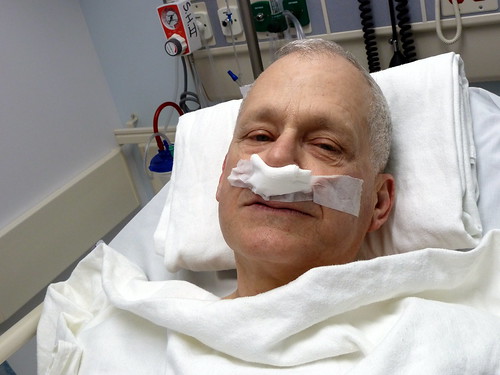Sinus Surgery and Recovery
Published by Nanni on Monday, August 06, 2012
Photo credit by krossbow
For some patients, a sinus infection is just the tip of the iceberg. Sinus surgery might be the only effective treatment for nonstop issues.
Two problems associated with the nose that frequently require surgery are nasal polyps and chronic sinusitis, which is the more common.
Endoscopic sinus surgery techniques have improved dramatically in the last few years. Most patients in the past had external excisions, required extensive packing after surgery and remained uncomfortable for a significant amount of time. A surgeon today can use a nasal endoscope for sinus surgery without an incision and with minimal packing, discomfort, and recovery time.
The most frequent situation for which doctors perform endoscopic nasal surgery is a chronic sinus infection unresponsive to medical treatment. It also treats complications of chronic infections, repeated individual sinus infections, nasal polyps or mucoceles, and chronic sinus headaches. It is the treatment of choice for many patients with an impaired sense of smell, tumors in the nasal or sinus cavities, cerebrospinal fluid leaks, and several other conditions. It is advised that patients should discuss the procedure with their physicians before scheduling it to make sure all other options have been considered.
What is chronic sinusitis?
Chronic sinusitis is described as a situation where a patient experiences prolonged infection and inflammation of the lining of his or her nose and sinuses. Typical symptoms include facial pressure, nasal congestion, discolored nasal discharge and a postnasal drip. Nasal secretions trapped in blocked sinuses end up chronically infected.
Most chronic sinusitis sufferers respond to medical treatment alone. Recurrent infections plague some, however, even after long courses of medicine. Many of these get good results from surgery.
Surgical objectives
The goal of endoscopic sinus surgery is opening the normal sinus drainage paths so the patient once again has the correct function. Small fiberoptic telescopes make it possible to operate entirely through the nostrils on an outpatient basis. A patient might receive local or general anesthesia, depending on the circumstances.
Before surgery
Prior to sinus surgery, the physician might prescribe medications to get the sinuses in shape for repair. Typically, they’re antibiotics or oral steroids or both.
Patients should avoid taking certain substances for at least 14 days before surgery. They include aspirin, iboprophen (sold as Advil/Motrin), naproxen (Aleve), other nonsteroidal anti-inflammatories (NSAIDS), vitamin E except in a multivitamin, garlic tablets, ginseng, and gingko biloba. All of them thin the blood. Use of Tylenol is considered safe. Patients should also steer clear of St. John’s wort for 14 days before surgery because of potential anesthesia interactions.
Smokers should stop for at least three weeks before surgery and at least four weeks afterward. The primary care physician should be informed of the surgery. He or she might be responsible for any required preoperative testing.
Recovery
The use of nasal packing depends on the extent of the surgery and the preference of the surgeon. For many patients, discomfort, congestion, and drainage improve within just a few days after surgery. Mild symptoms might hang on for several weeks.
An hour in a recovery room, followed by a few hours in another holding area before discharge, is typical. Patients must report the day after surgery to have old blood removed from the nose.
Doctors usually require three or four postoperative visits. Typically, the sinuses are almost healed three or four months after surgery.
The primary risks of endoscopic sinus surgery include significant bleeding, recurrence of disease, and spinal fluid leaks.
 | Posted in »
| Posted in »

0 comments: Responses to “ Sinus Surgery and Recovery ”